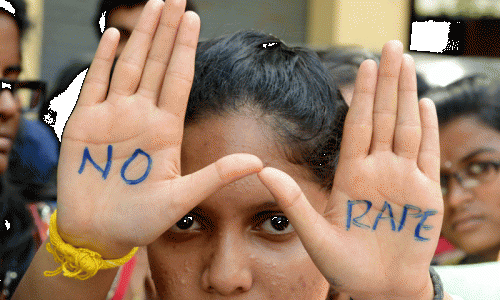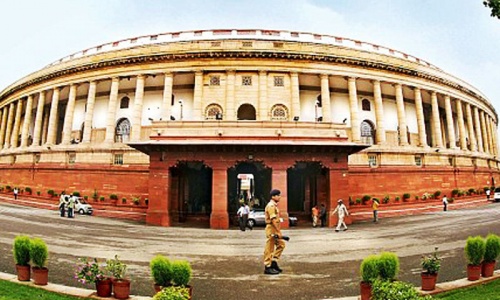India's Modi nominated as BJP's candidate for PM

NEW DELHI: Hindu nationalist Narendra Modi was crowned as the candidate for prime minister of India's main opposition Bharatiya Janata Party (BJP) on Friday.
BJP president Rajnath Singh made the announcement in a brief statement to journalists, cementing the remarkable rise of a leader adored by business, yet tainted by deadly religious riots that broke out on his watch.
India is due to hold its largest-ever general elections within eight months.
"I will work hard to achieve victory for the BJP in 2014 elections,” Modi said afterwards, describing himself as a “small party worker” from a small town.
From being the son of a tea-shop owner to running for leadership of one of the world's biggest democracies, Modi has methodically built a fervent fan base. However, as a deeply polarising figure he has also managed to make enemies along the way - even within his own party.
The nomination will pit the business-friendly chief minister of Gujrat against the centre-left Congress party, which is criticized as having turned jaded after a decade at the head of a testy ruling coalition.
Opinions regarding Modi's nomination are mixed. While supporters believe he has the drive needed to salvage a sagging economy and make India a regional superpower, detractors see only an authoritarian extremist who could fan sectarian tension in the religiously diverse nation.
While on the one hand Modi is celebrated as the successful chaperone of Gujrat's economic growth, his success is overshadowed by religious riots that took place in the state just months after he came into office. Nearly 1000 people died as a result, most of them Muslims at the hands of extremist Hindu mobs.
Modi's main opponent may be Rahul Gandhi, an establishment insider who represents the fourth generation of a dynasty that has governed India for more than two-thirds of the 66 years since independence from Britain in 1947.
Nominated just before his 63 birthday, Modi is known for rousing speeches and biting attacks on the Nehru-Gandhi dynasty that leads the Congress party.
In a rally earlier this week, Gandhi sought to diminish Modi's achievements by contrasting his business focus with the Congress party's welfare programmes for farmers and the poor with Modi's business focus.
"The opposition says that infrastructure of roads, airports, bridges is needed to take the country forward. These alone can't take the country ahead unless those who work to make these are taken care of too,” Gandhi declared.
Under Modi's leadership, carmakers Ford, Maruti Suzuki and Tata Motors have been drawn to Gujarat which, unusually in India, enjoys regular electricity supplies and smooth roads.
“The Indian stock market's greatest hope ... is the emergence of Gujarat Chief Minister Narendra Modi as the BJP's prime ministerial candidate,” Christopher Wood, chief equity strategist at CLSA Asia Pacific Markets told the Economic Times newspaper this week.
An opinion poll published last week found that three-quarters of Indian business leaders believe the government of 80-year-old Prime Minister Manmohan Singh has mismanaged the economy and they want Modi to lead the country.
Modi, whose rise came only after a great power struggle within the party, is consistently ranked as the favourite potential candidate for prime minister, but the complexity of India's political equations and a first-past-the-post system mean victory is by no means assured.
Some in the party worry that he is a divisive figure who will make it harder to form a coalition government.
“A socially polarising leader has polarised his own party. Can he run a smooth, stable and effective government at the Centre? Think seriously!” Sudheendra Kulkarni, a close aide of Modi's main opponent in the BJP, posted on Twitter on Thursday.
The party has little support in several important states and its Hindu nationalist philosophy is a turn-off for many Indians, especially among non-Hindu minorities - limiting Modi's appeal to potential allies who rely on those voters.
While the Congress and the BJP remain the country's two largest parties, the rise of regional political movements mean both will have to woo smaller parties to win the 272 seats needed to form a coalition government.












































